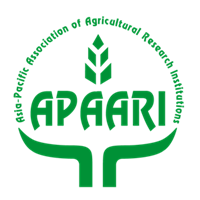Development Challenges of Indian Agriculture

This compendium consists of ten sector papers commissioned by FAO in 2008, as a precursor to the white paper and nally leading to the development of the FAO-India National Medium Term Priority Framework (NMTPF). These papers are intended to be comprehensive accounts of challenges and opportunities of the sectors thought to be critical for the development of food and agriculture in India. In particular, the paper The paper identifies opportunities for meaningful intervention by international developmental agencies based on identication of weaknesses, gaps and hurdles faced by the sector as reported in several recent studies and reports.
Related Resources
System of Rice Intensification in India: Innovation History and Institutional Challenges
This report documents the history of the systems of rice intensification (SRI, for short) in India in the last few years and presents some of the institutional changes and challenges that SRI throws up. The first part looks at the...

Report on Prioritization of Demand-driven Agricultural Research for Development in Bangladesh
The International Food Policy Research Institute (IFPRI) partnered with the Asia-Pacific Association of Agricultural Research Institutions (APAARI) in 2011 to conduct a series of policy dialogues on the prioritization of demand-driven agricultural research for development in South Asia. Dialogues were conducted with...
Enhancing Agricultural Innovation: How to Go Beyond the Strengthening of Research Systems
The paper reports on the results of the international workshop, “Development of Research Systems to Support the Changing Agricultural Sector,” organized by the Agriculture and Rural Development Department of the World Bank in June 2004 in Washington, DC. The emphasis...
Losing less and winning more: building capacity to go beyond the trade-offs between conservation and development in the Lowel Mekong
This brief explains about a three-year research project (2006-09), conducted by the Center for International Forestry Research in the lower Mekong River countries (Cambodia, Laos and Vietnam). The best practices in design and implementation were identified through a broad review of...
Innovation Transfer into Agriculture - Adaptation to Climate Change (ITAACC). Result B: Assessment of the Demand-supply Match for Agricultural Innovations. North & West Africa Workshop Report
The GFA ITAACC final workshop in Nairobi was attended by more than 80 people comprising representatives of farmer organizations, NGOs, government, private sector and research institutions. The workshop proved to be an excellent platform for actors in the innovation system to...


